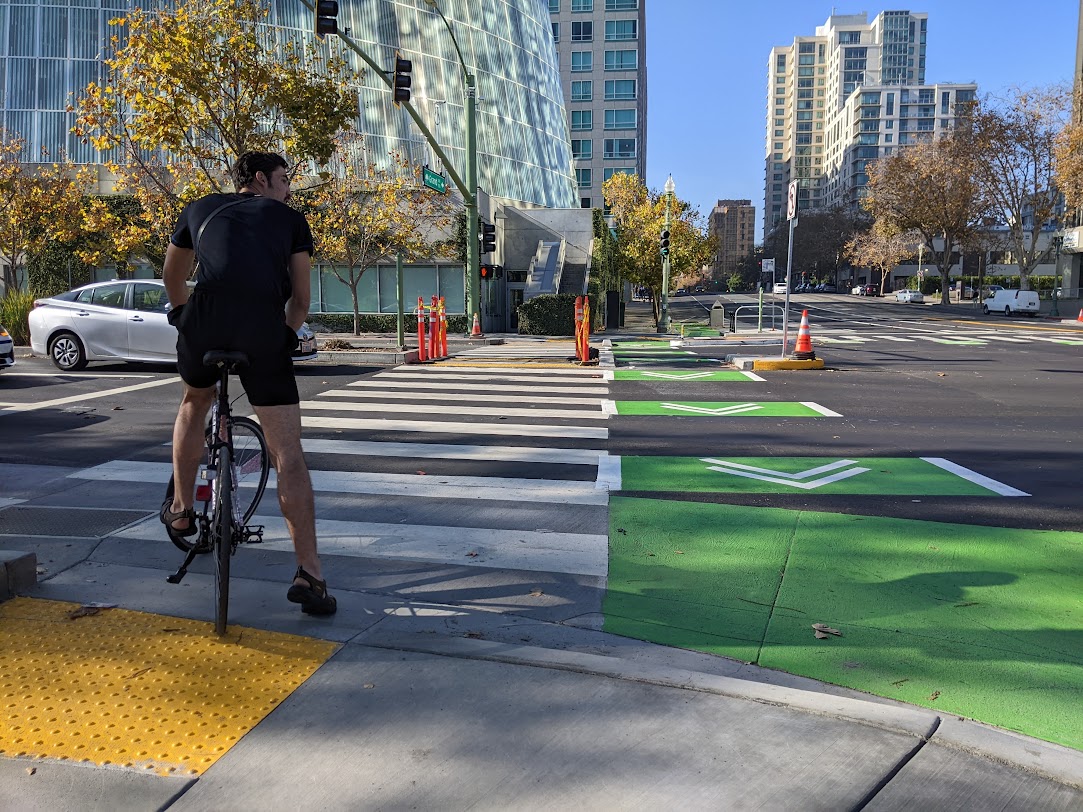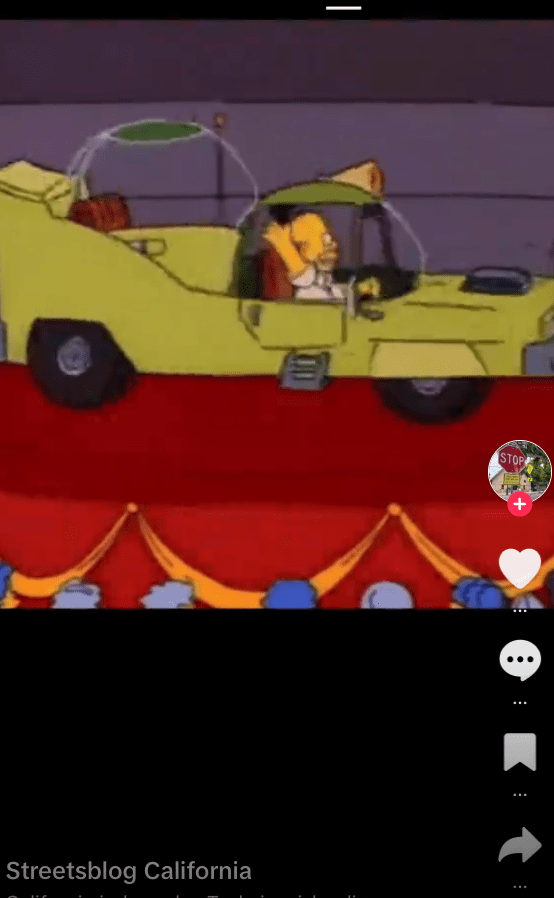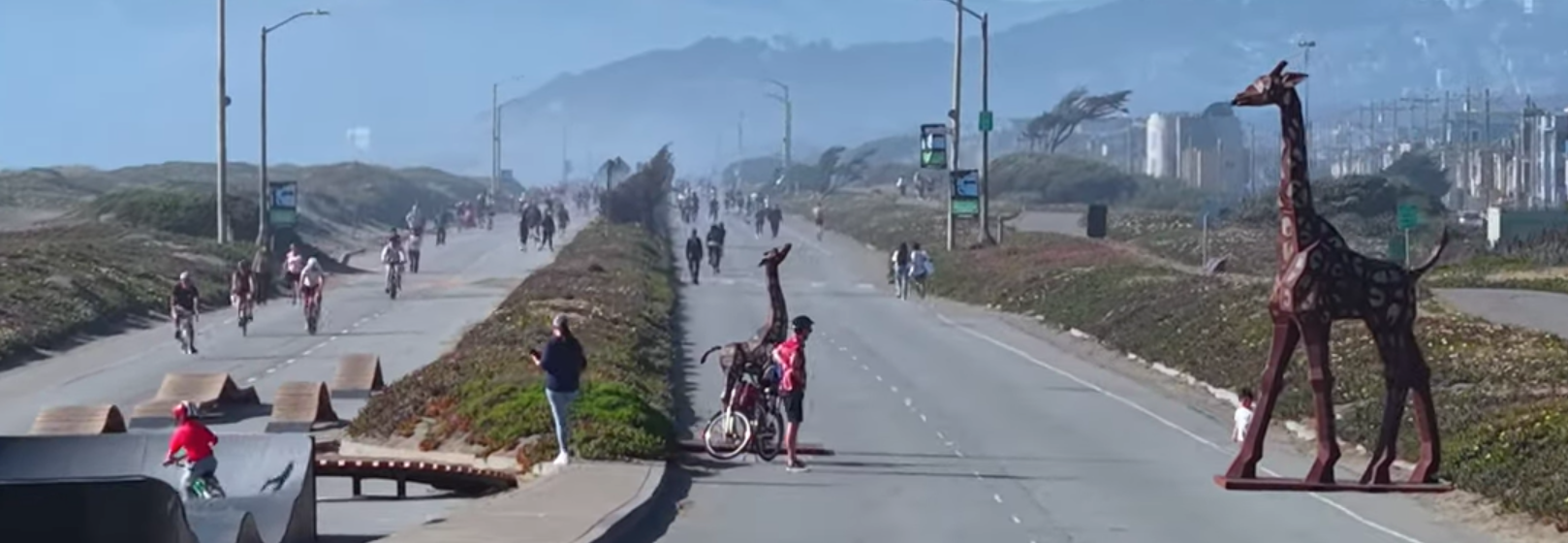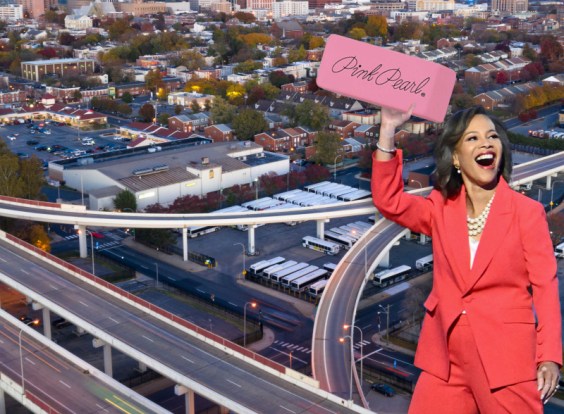
Two bills that had the potential to increase equity in transportation planning died yesterday for lack of support.
A.B. 1982 would have created two positions on the California Transportation Commission (CTC) for representatives of low-income communities. A.B. 2332 would have required Caltrans to follow its own guidelines on incorporating complete streets concepts into all projects, with a focus on accessibility for low-income communities.
The second bill was withdrawn by the author, Eduardo Garcia (D-Coachella), without being voted on.
Assemblymember Richard Bloom (D-Santa Monica), who is a member of the committee, introduced A.B. 1982 as a solution to inequities in transportation planning that have begun to be acknowledged in higher levels of government. “The CTC plays a critical role in transportation funding allocations, as you know, and currently none of its eleven voting members is specifically required to have expertise in environmental justice,” said Bloom. “That's problematic when you consider that transportation investment has historically been a major factor in segregating and disrupting disadvantaged communities and exacerbating their health disparities.”
The bill would have created two new commissioners, one to be appointed by the Senate and one by the Assembly, to represent low-income communities of color on this major decision-making board. Jeanie Ward-Waller of the California Bicycle Coalition, a co-sponsor of the bill, said it would have been a first step towards righting the mistakes of past investments. “We must very intentionally prioritize the needs of and address the impacts on low-income communities of color in our future investments,” she said. Roughly ten million Californians don't drive, she said, because they can't afford to—so they walk, bike, and take transit because they have no choice.
“Without representation that understands the specific needs of Californians that don’t drive, and that are burdened by rather than benefiting from our current transportation system, we will continue to marginalize and ignore the needs of these residents.”
But the bill received a somewhat hostile reception from the committee chair, Assemblymember Jim Frazier (D-Oakley). “The only established criteria with regard to the appointment of commissioners is to achieve geographic balance between north and south, urban and rural,” said Frazier.
“I don't think it's necessarily a bad idea to configure the board based on areas of interest, but if we're going to do it, a lot of areas of interest would need to be incorporated,” he added. Those areas, he said, would need to include “logistics, freight, trucking...”—in one word, freight. Frazier himself is highly interested in freight, and brings it up in discussions at the CTC, for which he serves as an ex-officio member.
“Unfortunately,” he concluded, “the bill would elevate disadvantaged communities and their interests above all others,” (that is, freight?) “and we can't have that.”
The committee analysis included a very long list of supporters for A.B 1982, and no registered opposition—and no one spoke in opposition at the hearing. Nevertheless, the chair's refusal to support the bill killed it, as several committee members withheld their votes. The final tally was:
- Four “yes” votes from Democrats Bloom, Cheryl Brown (San Bernardino), Jimmy Gomez (Echo Park), and Adrin Nazarian (Sherman Oaks)
- Six “no” votes from Chair Frazier and Republicans Catharine Baker (San Ramon), Young Kim (Fullerton), Eric Linder (Pomona), Devon Mathis (Visalia), and Melissa Melendez (Lake Elsinore)
- Six members did not vote, all Democrats: Kansen Chu (San Jose), Tom Daly (Anaheim), Bill Dodd (Napa), Eduardo Garcia (a co-author of the bill), Jose Medina (Riverside), and Patrick O'Donnell (Long Beach)
“It's disappointing because we're investing in transportation projects far into the future,” said Chanell Fletcher of Climate Plan, one of the bill's supporters. “If we really want to meet our ambitious climate goals, we need to make sure that we are putting the right transportation infrastructure in disadvantaged communities. This means more transit, sidewalks, and bicycle paths and less highways and freeways.”
“A.B. 1982 was our opportunity to elevate equity in our transportation decision-making. Calling environmental justice communities a 'special interest' is way off the mark. These are communities in California whose voices have been absent for far too long. It is extremely disturbing that legislators like Assemblymember Frazier don't understand the difference between special interests and disadvantaged communities.”
A motion to reconsider the bill was unanimously approved, but there are no more meetings of the committee planned before this Friday's deadline, so it's unclear how that might save it.
Also defeated in the same hearing was a similar bill, A.B. 2382 from Patty Lopez (D-San Fernando), which would have added representatives of disadvantaged communities to the California High-Speed Rail Authority.
Update: Last week the committee had a testy moment when it heard A.B. 2253, to create a specialized license plate with the motto “In God We Trust.” The bill was shot down because it would have supported a private nonprofit dedicated to promoting the motto throughout the country—and maybe other questionable causes. The bill's author, Shannon Grove (R-Bakersfield), returned this week, having amended the bill so that any money raised by it would support a new program for homeless veterans.
“They couldn't oppose veteran's homelessness,” said Grove, just before her bill passe




